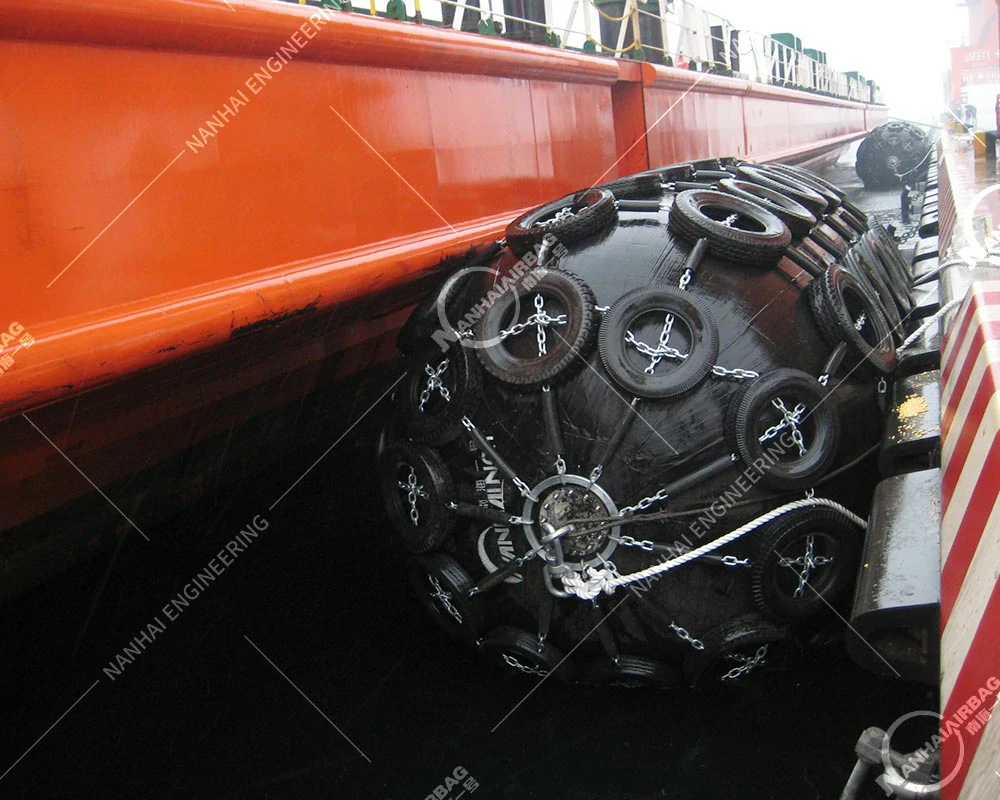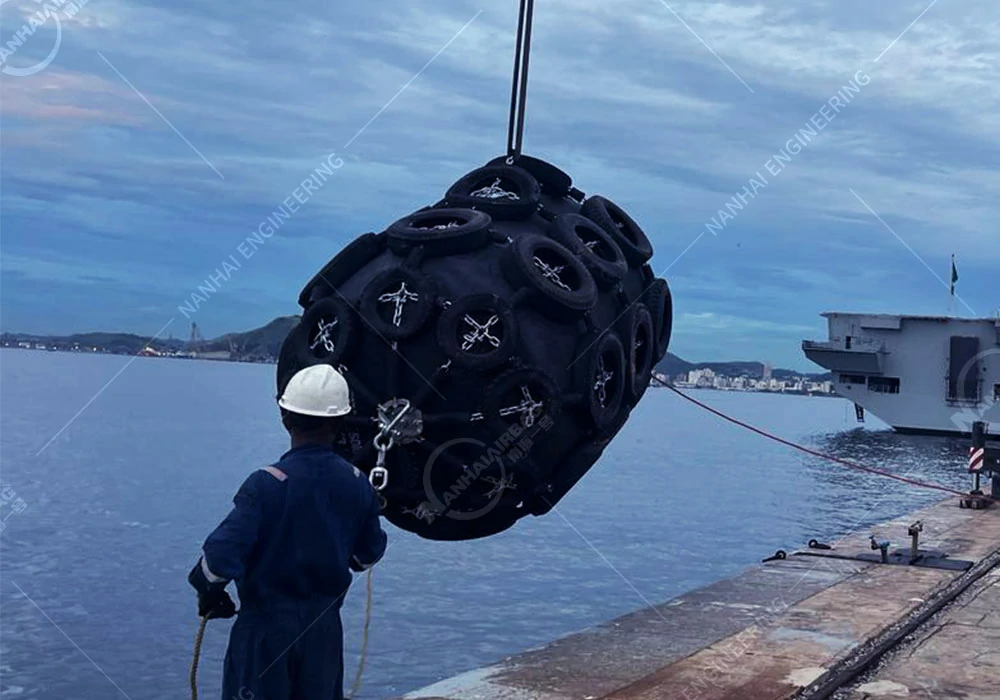D Rubber Fenders: The Unsung Heroes of Smooth Marina Days (No More Scraped Hulls!)
26/08/2025Tugboat Rubber Fenders: The Unsung Heroes of Harbor Safety (And Why You Can’t Ignore Them)
02/09/2025


You’re guiding a 30-foot sailboat into a busy marina when a sudden gust of wind pushes it sideways. The hull scrapes against the dock, and you hear that dreaded crunch—paint chips, gelcoat cracks, and now a $500 repair bill looms. Sound familiar? For boat owners, marinas, and small vessel operators, docking mishaps are more than just annoying—they’re expensive. That’s where Yokohama fenders step in: the gold-standard marine fenders trusted by boaters worldwide to turn chaotic docking into smooth, scratch-free routines. Let’s unpack why these rubbery workhorses are non-negotiable for protecting your biggest investment.
What Are Yokohama Fenders? (The Quick Answer)
Yokohama fenders are premium marine fenders engineered by the legendary Japanese brand Yokohama Rubber, designed to absorb impact, distribute force, and shield boats, docks, and structures from damage during docking or collisions. Known for their rugged durability and innovative design, these fenders are crafted from high-quality materials like EPDM rubber (ethylene propylene diene monomer) and reinforced with synthetic fabric, making them built to withstand saltwater, UV rays, and the brute force of heavy ships. Whether you’re a weekend kayaker or a commercial fisherman, Yokohama fenders are the “insurance policy” for your hull.
Why This Matters: When a “Cheap” Fender Costs You Thousands (And Ruins Your Reputation)
Let’s get real: Not all fenders are created equal. A few years ago, a small marina in Florida switched to generic rubber fenders to cut costs. Within 6 months, 80% of their clients complained of hull scratches, and two boats needed 1,500+repairsafterminorcollisions.Themarinalost12,000 in revenue from upset customers and spent $8,000 on emergency repairs.
Enter Yokohama fenders. The same marina switched to Yokohama’s premium rubber fenders, and within a season, hull damage complaints dropped by 90%. “It’s like night and day,” says the marina owner. “Boaters love that their boats stay scratch-free, and I’m saving thousands on repair subsidies.”
This isn’t just a Florida story. Here’s why Yokohama fenders are urgent for youroperation:
- •Small Boats, Big Risks: Kayaks, fishing skiffs, and sailboats have thin, delicate hulls. Cheap fenders (like flimsy rubber pads or metal cleats) concentrate impact on small areas, leading to dents or tears. Yokohama fenders’ reinforced design spreads force evenly, protecting even the most fragile hulls.
- •Marina Reputation = Revenue: Happy boaters return. Scratched hulls lead to angry reviews, lost customers, and wasted time fixing avoidable damage. Yokohama fenders keep your marina’s Google rating high and your docks in demand.
- •Durability in Harsh Conditions: Saltwater, sun, and wave action break down cheap fenders fast. Yokohama’s EPDM rubber resists UV degradation, mold, and corrosion—lasting 5–10 years (or longer!) with minimal upkeep.
What Makes Yokohama Fenders Different? (Spoiler: It’s All About Engineering)
Yokohama isn’t just another fender brand—they’re a legacy of innovation. Here’s why their fenders outshine the competition:
1. Military-Grade Rubber = Unmatched Durability
Yokohama fenders use EPDM rubber, a material known for its extreme resistance to heat, cold, and chemicals. Unlike cheap rubber that cracks in freezing temperatures or softens in the sun, Yokohama’s rubber stays flexible and strong for years. Even after 10,000+ collisions, they bounce back without sagging or tearing.
2. Reinforced Fabric = No Sagging, Ever
Beneath the rubber outer layer, Yokohama fenders are reinforced with high-tensile synthetic fabric (like polyester). This “skeleton” prevents the fender from stretching or deforming under heavy impact—something cheap fenders can’t do.
3. Precision Engineering = Perfect Fit
Yokohama designs fenders for specific vessel types (kayaks, fishing boats, yachts) and docking scenarios (tight marinas, rough seas). Their tapered edges and contoured shape cradle the hull, reducing stress points and ensuring even pressure distribution.
Yokohama Fenders vs. the “Other Guys”: Why They’re Worth the Investment
Curious how Yokohama stacks up against generic fenders? Let’s break it down:
1. Yokohama Fenders vs. Generic Rubber Fenders
Generic fenders are cheap but fragile. They’re made from low-grade rubber that cracks or hardens over time, leading to frequent replacements. Yokohama fenders? They’re built to last—with a 5-year warranty and a track record of outperforming competitors.
2. Yokohama Fenders vs. Metal Fenders
Metal fenders (steel, aluminum) are durable but rigid. They transfer impact back to the boat, causing hull stress and dents. Yokohama fenders absorb and redirect energy, reducing strain on both the vessel and the dock.
3. Yokohama Fenders vs. Foam Fenders
Foam fenders are great for soft landings, but they lack the structure to handle heavy ships. Yokohama fenders combine foam’s shock absorption with rubber’s durability, making them ideal for large vessels and rough conditions.
People Also Ask: Your Top Yokohama Fender Questions
Q: Are Yokohama fenders only for large boats?
A: No—they come in sizes ranging from 12-inch “mini fenders” for kayaks to 48-inch “heavy-duty” versions for commercial fishing boats and yachts. Yokohama even offers custom sizes for unique docking needs (like luxury yachts with teak hulls).
Q: Do they need special maintenance?
A: Minimal. Rinse them with fresh water monthly to remove salt or algae, and inspect for cracks once a year. The rubber is designed to last 5–10 years with minimal care—even in harsh, salty environments.
Q: Can they be used in both freshwater lakes and saltwater oceans?
A: Absolutely. Yokohama fenders are made with non-toxic, corrosion-resistant materials, making them safe for lakes, rivers, and oceans.
Q: Are they worth the cost compared to cheaper fenders?
A: 100%. A 100Yokohamafendermightcost3xmorethanabasicrubberone,butitlasts3–4xlongerandslashesrepairbills.OnemarinainCaliforniasaved20,000/year after switching—enough to buy 200+ generic fenders outright.
Q: Do they come with a warranty?
A: Yes. Yokohama offers a 5-year limited warranty on most models, covering defects in materials or workmanship. Many retailers also extend warranties for commercial use.
Final Thoughts: Don’t Let Docking Disasters Sink Your Summer
Docking shouldn’t feel like a high-stakes game. With Yokohama fenders, you’re not just buying a fender—you’re buying confidence. Confidence that your boat stays scratch-free, your marina keeps happy customers, and your wallet avoids unnecessary expenses.
Ready to upgrade? Start by measuring your boat’s hull width and docking needs, then check out trusted marine suppliers (look for those specializing in marine fenders). Your hull, your dock, and your weekend plans will thank you—no more “crunch” moments, just smooth, worry-free docking.
Keywords: marine airbags, marine fenders, rubber fenders
